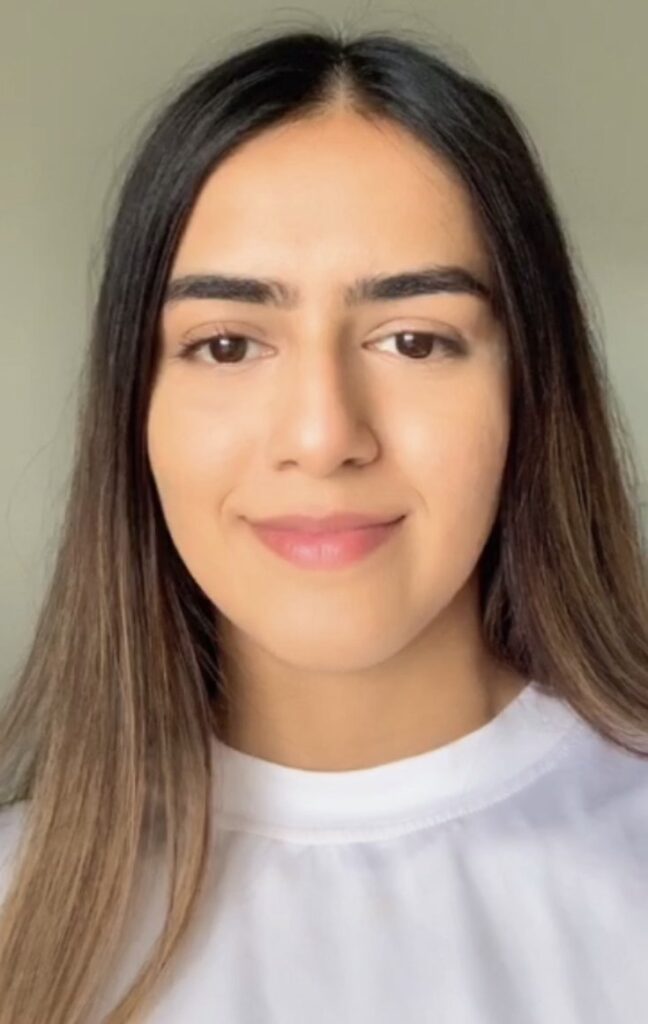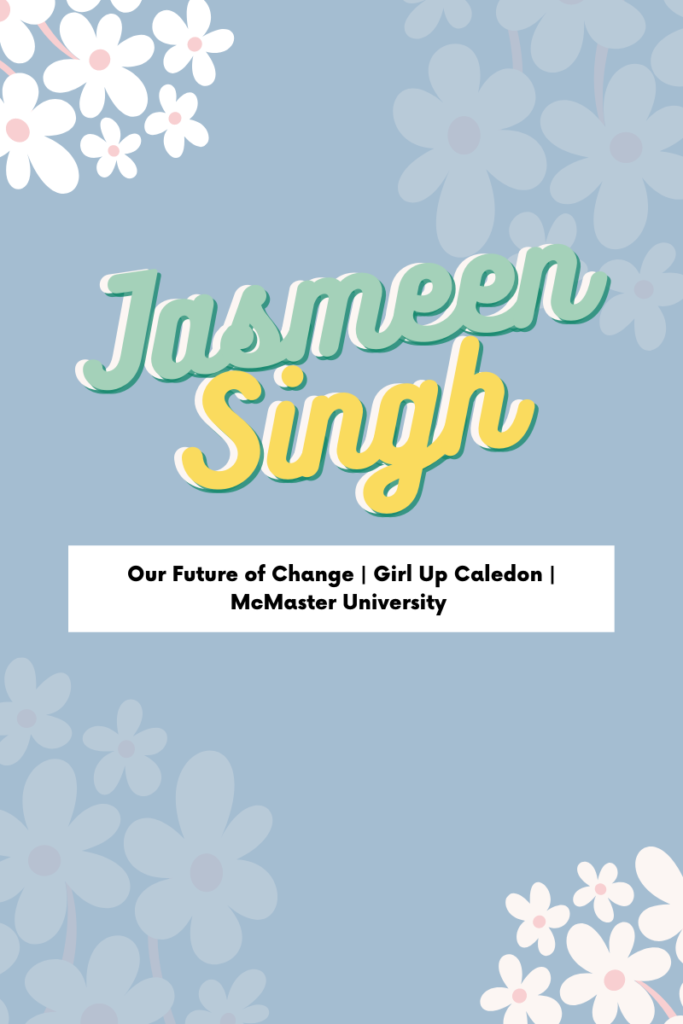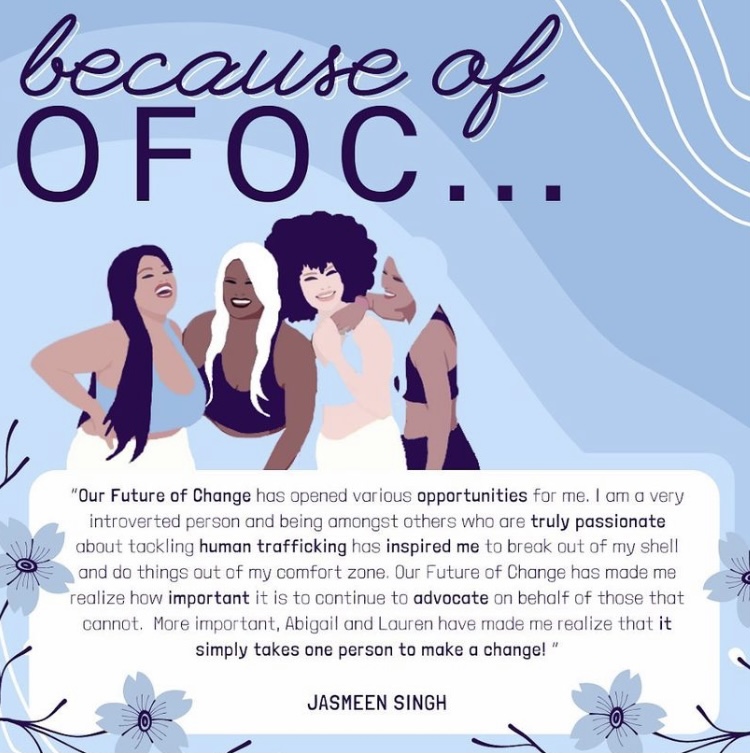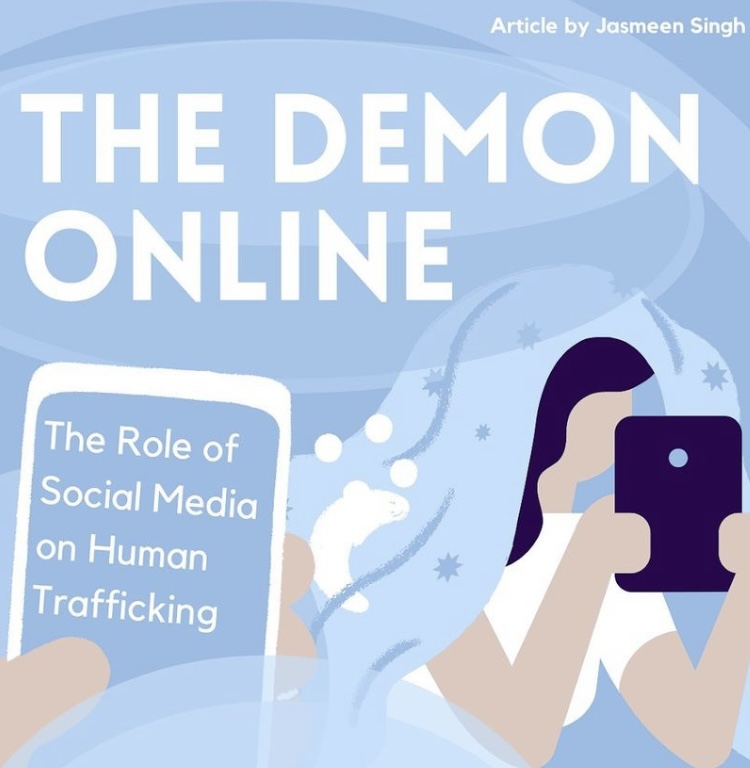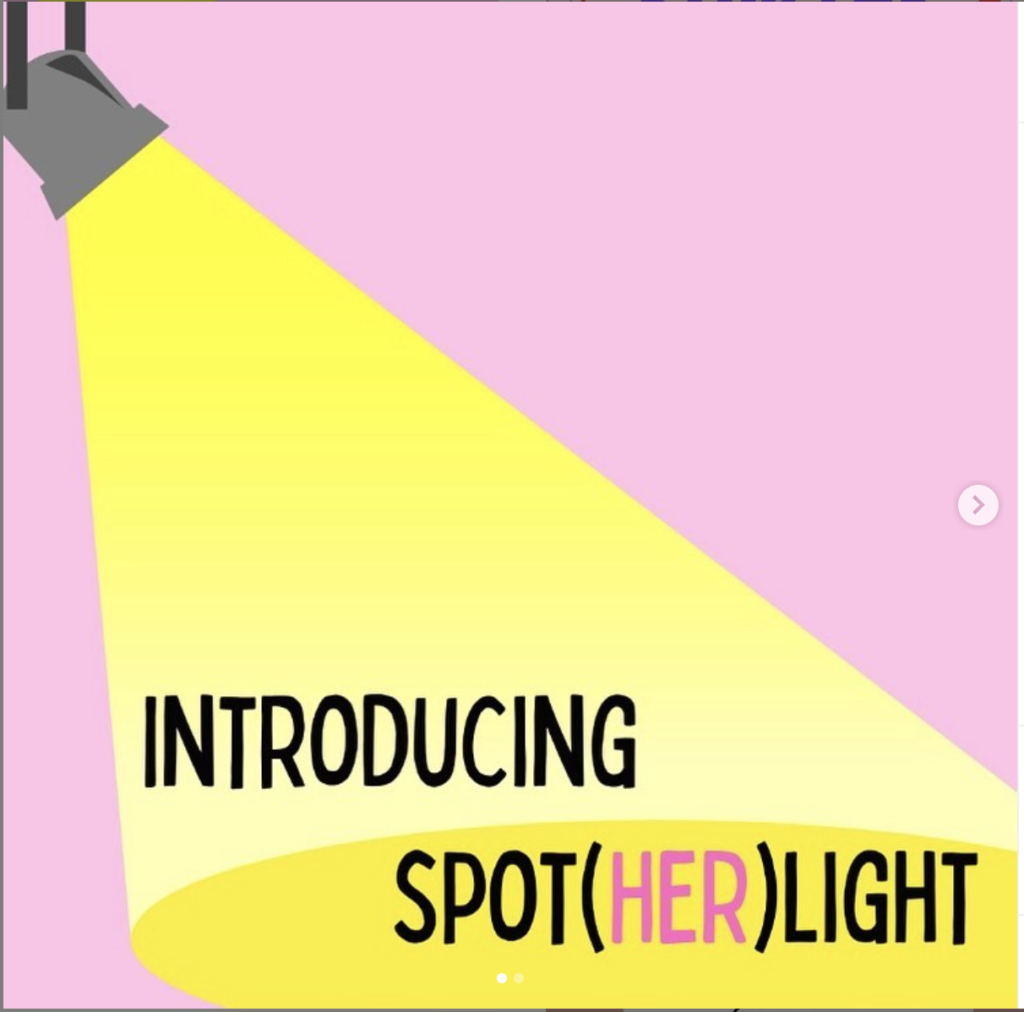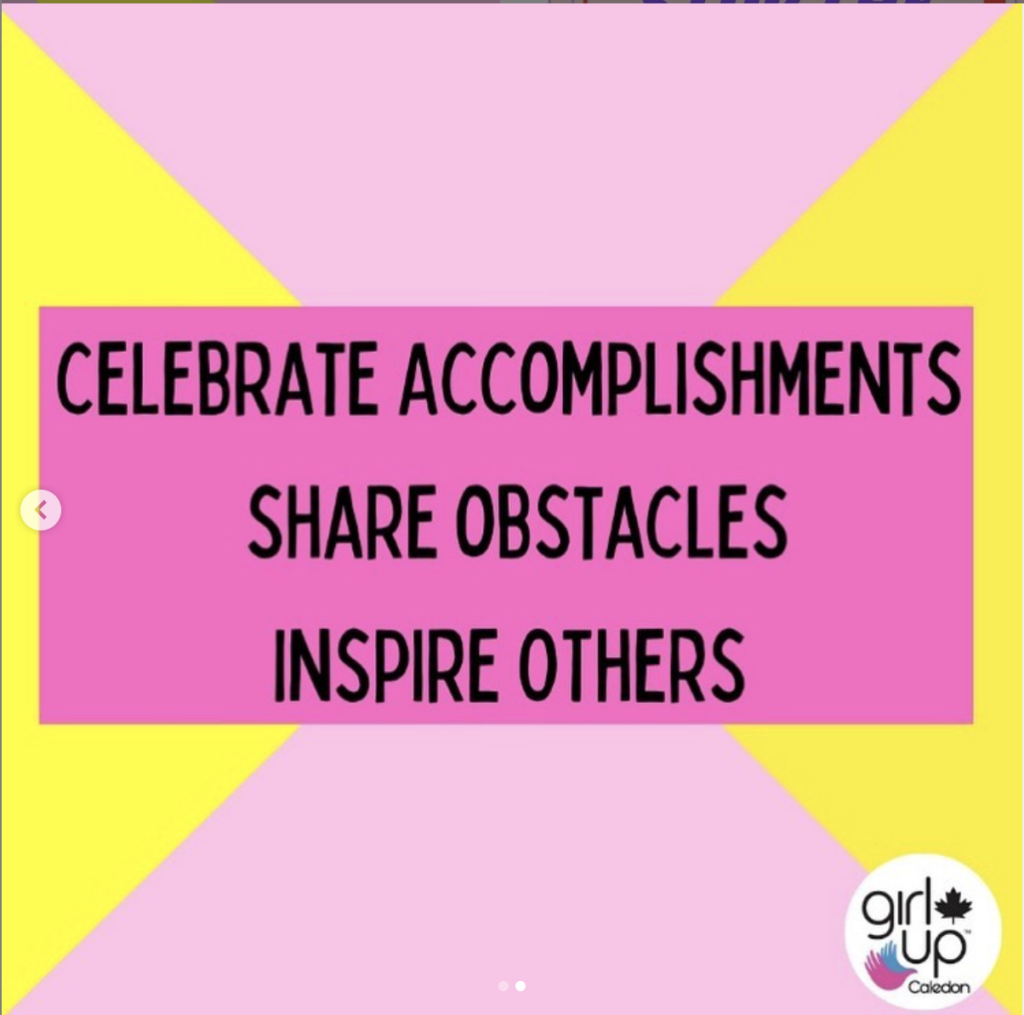Interview by Anika Mukker
Jasmeen is a rising second year at McMaster University studying Honours Life Science. Born and raised in Canada, she places a lot of her time and effort into community work related to women’s empowerment, leading both Girl Up Caledon and the Our Future of Change club at her University. She also loves to garden, cook, and lead a healthy lifestyle!
Fun Fact: She can cook lasagna from scratch in 30 minutes instead of needing the regular hour or two for prep!
Our Future of Change is centered around bringing students together in the fight against human trafficking. Are there any experiences that led you to get involved with their efforts? Something that resonated with you in their mission or the issues they work to address?
I found the organization a couple of days after they launched; I was scrolling through Instagram and was immediately drawn to their mission. Before deciding whether or not to join, I reflected on what was missing locally as opposed to globally. I decided I really wanted to start either a mentorship program for girls or an organization that raised awareness on human-trafficking. Human trafficking is a huge issue in Canada yet so many people are unaware of that. The problem isn’t really talked about despite the fact that statistics show survivors rarely receive justice due to the legal system and there are a lack of reintegration programs offered by the government. When I came across Our Future of Change I realized that I didn’t have to start my own independent organization because there was already one established. For the first 6 months or so, I was a general ambassador, and I wrote articles. Within another 6 months, I was offered a leadership position, and that definitely wasn’t my initial intention. Throughout my time as an ambassador, I would step up and write articles, edit work, etc. I was the person who was always there when anyone needed any help.
That was mainly because I’m passionate about what the organization stood for. I liked researching and learning about the issues prevalent in Canada and drafting them into articles to share. So, I was offered to be Director of Canada — to manage all of the chapters of the organization in the country. We started clubs at a couple of Universities and High Schools, and I was basically the point person for all of them. I did that position for 4 or 5 months and then decided to start my own club at my own University. That was probably the best (and the hardest) decision I had ever made. I knew I had to take a step back and focus my efforts locally because there was no anti-trafficking club at McMaster. I thought “I’m doing all of this work globally, but there’s nothing going on locally. All of these students in my university don’t know how big of a problem human trafficking is in our community.”
Were there any other factors that influenced you to make that switch from doing global and national work to focusing on the needs of your immediate community?
I wouldn’t say something but someone. When I was a writer, I would always jump on calls with the founders to discuss articles and ideas. Then, when I was thinking about starting McMaster Future of Change, I asked them if they could jump on a call with me right at that moment — like right at that moment. So they hopped on a call, and we talked. They told me that my idea was good and pushed me to go ahead with it. But I was still afraid that I wouldn’t be a good leader. “What if I can’t manage that leadership position.” They then responded “Are you kidding?!” and encouraged me to take on that role. Them taking the time at 2:00 AM to hop on the call and assure me was so empowering and gave me so much confidence. I realized that I wanted to be there for someone like they were there for me. I also realized that no one was stopping me except for myself and took the step.
With Girl Caledon, you do a lot of virtual programming and social media work. What compelled you to start these projects, specifically Spot Her Light? What role do you feel digital media plays in advocacy?
For Spot Her Light, growing up I was the eldest. I was always the goal setter, but I felt like I was put into that position for a reason. I could handle the stress of being the first, but it was a lot to deal with.
I knew that we needed to start a program that shared girls’ struggles and their accomplishments so others could recognize that their obstacles don’t always define them and that there’s a brighter future ahead. Spot Her Light does an incredible job of showing that here were these girls’ obstacles, they overcame them, and look at what they’ve accomplished.
We also always ask those girls what advice they would give themselves, and it never fails to hit me. My life would have been impacted so much if I heard their thoughts when I was younger.
In general, there is so much reason to use these online platforms. You can do so many things that you couldn’t do in person. Technology is very convoluted: you can use it to create change or you could spend time binge watching Netflix. But regardless, you have to take a step back and see all that you can do with digital media. If you look at GU Caledon’s recent posts, we’ve been advocating for a lot of human rights issues because it’s our organization’s core belief that you can’t talk about women’s rights without talking about human rights as a whole. For example, back in October we made a post about farmers in India. Our team was angry that the farmers weren’t being highlighted enough in the media, and we thought about how few people actually heard about the issue. And, we wanted to do something about it. The post ended up blowing up and helped us grow our platform!
In a way, that really motivated us; it reminded us that one post can really help out organizations trying to make a difference. In the end, what the most important thing is, is putting technology to use for good.
How do your background and cultural identity shape the issues that you’re passionate about?
My parents wholeheartedly support women and girls pursuing higher education, but that’s not the case for all families. I remember my dad talking about how so many girls in India only attend school until Grade 9 — that there is a heavy focus on getting married and starting a family young. Through hearing those stories, I understood how lucky I was. We are all connected culturally, but there are still so many disparities around the world. That’s one of the things that motivates me to make a change. In fact, one of my dreams is to build a school in India for the girls that can’t pursue or are denied their right to an education. In many ways, my culture has made me really reflect on my privilege.
I’ve also heard people comment on how if girls are educated, the world would become a mess. However, we’re seeing the exact opposite right now. Girls and women in leadership positions are doing so much good, making such a big difference in the world.
